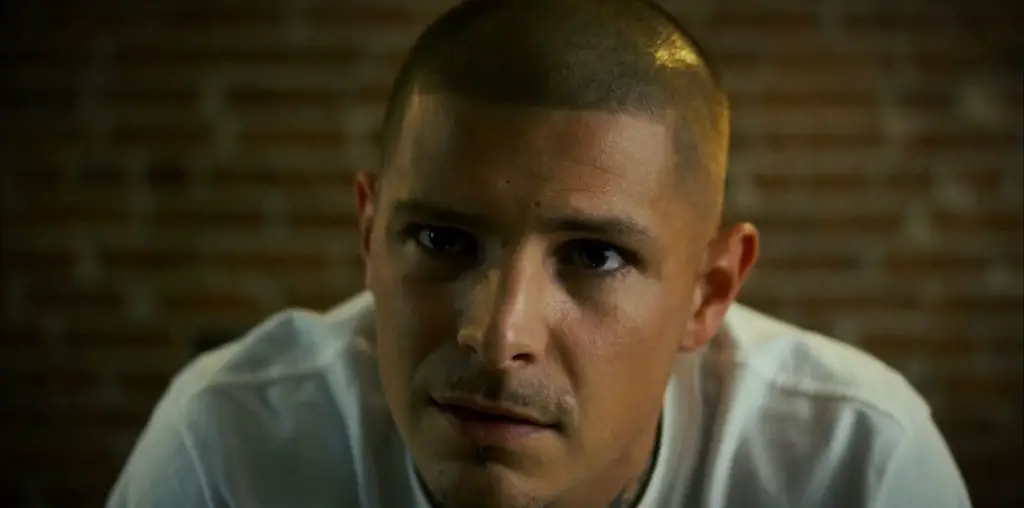
Underground fighter Toby (Aaron Long) has had a bad run of late. He’s upset a particularly violent businessman, has to care for his invalid mother (who he emotionally, and sometimes physically, abuses) and is generally a bruised and bloodied mess. As if things couldn’t get worse, a fight takes a wrong turn and he ends up dead.
Suddenly lost in alternately a cold countryside or the wilderness, and unable to return home because of an abrasive person who has taken up residency there, Toby wanders until he is offered a ride. The driver informs him that she will be judging him based on his past, and then she will deliver him to either Heaven or Hell. When she finishes her judgement, Toby, fearing there is no doubt that he is Hell-bound, refuses to take the ride, choosing instead to stay in this weird limbo, where he encounters a number of other people who have all made the same choice.
John Wheeler’s The Last Road is a bleak experience. While there are moments of redemption for Toby, the majority of the film is spent wandering around with this almost useless sack of humanity, until a plot development concerning another denizen forces a more traditional narrative to appear. Then the film’s wandering becomes more focused, and a very real objective is introduced.
Mostly it’s a film of ideas about the afterlife, and reflections back on one’s life; it could be a darker companion piece to What Dreams May Come. The film sticks to a subtle, though consistent, idea that it is the things we carry with us into death that keep us from moving on, whether that be regrets, childhood items or even, for Toby, his dog Prince. This leads to an arguably satisfying resolution.
But does the journey to that end need to be almost two hours long? I would argue that it doesn’t. While certain sequences do make you go “hmmmm,” quite a few others don’t make much of a lasting impression. Coupled with the wandering and Toby’s often bleak confusion, the film meanders too much in the middle. I think you could probably edit this down at least another ten to fifteen minutes.
Having said that, if the creative choice is to make the film feel like an eternity in Purgatory, then the pacing works in that way. The film also makes stylistic editing and compositional choices that bring energy to sequences that otherwise might not have them. The film knows it’s asking a lot from an audience, and tries to mix things up enough to keep them interested.
Ultimately, I think the film works. While I did find my mind wandering in the middle, I was never really bored with the film. Trying to figure out what the film was getting at with certain characters and situations allows you to run with the narrative in a number of directions beyond the obvious, and that offers an extra level of engagement. It all comes down to whether you find the ideas presented interesting enough to ponder, of course, but I think the film delivers enough variety to avoid becoming too stale.
This film was submitted for review through our Submission for Review system. If you have a film you’d like us to see, and we aren’t already looking into it on our own, you too can utilize this service.

As Producer of The Last Road I was proud to be a part of this two hour feature and working with so many great people. Not many people can say they sold their first movie. From a fighter to actor Aaron Long deserves full credit.
Laurence Williams